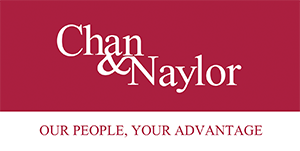On the first Tuesday in December Phillip Lowe and the RBA announced their 8th consecutive increase to the Reserve Bank Cash Rate. This takes us to the highest cash rate (3.1%) in over 10 years, and this has and will have, a significant impact on the housing and lending market. But this may also lead to opportunity! If you’re in the fortunate position of being able to borrow and buy, you may be able to snap up a bargain for your next (or first) investment property.
One thing that is commonly misunderstood is the direct and indirect link between the cash rate and mortgages. For a major bank (or a deposit taking institution), a lot of the funding that they use to lend to homeowners comes from deposits that consumers have in the bank. What this means is that in theory, when the banks raise their mortgage interest rates, they should also be increasing their deposit interest rate that consumers have access to. You may be shocked to find out that it doesn’t always happen this way, and of course, the banks stand to profit further than they did previously.
For smaller lenders, 2nd and 3rd tier lenders and mortgage managers, funding comes from elsewhere. This may be wholesale funding through warehouse facilities with other major banks, or credit that they access through hedge funds or other large investment firms. Overall, the link between the cash rate and mortgage rates is very minimal and indirect based more on perception than direct cost of funding.
Whatever the reason, rates are going up and could potentially continue to do so for some time yet, and some of the main impacts are as follows:
- Capacity to borrow: When banks assess a mortgage application, they use a “sensitised interest rate” meaning they establish what the repayments could be on any given mortgage if rates were to increase by 2.25% to 3%. This is to safeguard (which has become highly relevant in the past 8 months) the customer from running into financial hardship should we have a situation as we have now. But what this means, is that 8 months ago, banks were assessing customers at between 4.5% to 6% and are now assessing at between 7.5% and 9%. This is a significant difference and obviously reduces the capacity that consumers are assessed to be able repay- If you have a pre-approval or are looking to borrow, make sure you are checking monthly with your broker to ensure that your capacity to borrow is still there!
- Housing market: So, based on the above, consumers are now able to borrow less than they could at the start of 2022. Where there is less capacity to borrow, there is less capacity to compete at auctions or make offers on properties, to drive property prices up
- Capacity to refinance: In areas where the property prices have dropped substantially, it may make it hard to refinance your property. If you have a loan for $800,000 against a property that you purchase last year for $1m, you started with an 80% Loan to Value Ratio (LVR). But if that property has dropped and is now worth $900,000, your LVR is now just below 90% depending on how much principle you have paid off. As a general rule if you borrow more than 80% of the value of a property you will be required to pay Lenders Mortgage Insurance (LMI) and you are also likely to pay a higher interest rate- With this in mind as well as a reduced borrowing capacity as above, some consumers may be stuck with their current lenders until market conditions change.
Although things are looking challenging for next year, it may not be the case. If you’re in a position where your current mortgage rates are too high (over 5%) or you want to be ready to pounce on that next well priced investment, contact us at Chan and Naylor finance and schedule in your free consult to explore your options over the next couple of years.
Aaron Hickey
Mortgage Broker | Pymble
5/55 Grandview St, Pymble NSW 2073 Australia
P: 1300 306 868 | M: [0429 597 371]
E: [aaronh@chan-naylor.com.au]
W: www.chan-naylor.com.au
Aaron Hickey is a credit representative number 495791 of BLSSA Pty Ltd ACN 117 651 760 (Australian Credit Licence 391237)




